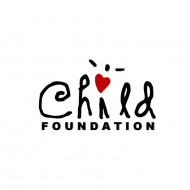by Hannah Stevenson
A child’s life should be one of innocence, play, learning, and family. However, this is simply not the case for children with IBD. Often, their play is halted short by hospital visits, surgeries, pain, and poor health. For these children who have to swap out play dates with painkiller and basketballs with blood tests, they miss out on critical time with friends, family, and even just simply feeling well.
I recently came across a picture book called “A Bridge to Experience” written and illustrated by a 12 year old Crohn’s patient. The young author uses the fictional main character ‘Julie’ to explore her struggle with Crohn’s. In the honest and straightforward way that only a 12 year old can write, the writer heartbreakingly chronicles Julie’s trajectory from a happy young woman with a paper route and upcoming basketball championship to a survivor of major surgery and uncounted painful hospital visits in a matter of days.
I can only imagine how “A Bridge to Experience” helped other children understand more about the experiences of pediatric IBD and Crohn’s patients. But as an adult, reading this short 31 page novel was eye opening and heart breaking. Julie’s thoughts along her journey are brutally honest and lay bare the reality of the emotions of an ill child stuck in the hospital.
She recounts her first night in the hospital: “…she thought it was a dreary place where people die, and didn’t want anything to do with it, but she didn’t really control her future.” and being hooked up to all sorts of tubes and mechanisms.
She somewhat humorously tells of being “…bored out of her mind and desperately looking for something to do…” while waiting for doctors, nurses, and answers.
She recalls feeling helpless and scared, “…exploding with questions that needed to be answered.”
And, most difficult to read, are the times when she talks of letting out “blood-curdling” screams, the pain she felt during procedures, and feeling “…her eyes almost close forever…”.
Reading this book felt, truthfully, disturbing. It’s upsetting to think about a child writing these words- especially from personal experience. I think our discomfort with the subject is both good and bad. We should never be comfortable with children being in pain. But, because it is so uncomfortable it is easy to ignore these forgotten children, to push them out of our worry and assume that the problem is being taken care of.
We cannot ignore these children. Canada has among the highest rates in the world- and it is inexplicably and dramatically rising. 25% of these are children.
“A Bridge to Experience” is the story of just one of these children, the tale is replicated by hundreds of thousands of children. So for children like Julie who had their childhoods stolen by pain and hospitals with no cure or end in sight, we must continue fighting for a cure. So that no child ever has to write a book like this again.
References:
Anonymous. “A Bridge to Experience”, Parsons Publishing Co, 1993.
Gilaad G Kaplan, MD, MPH, Charles N Bernstein, MD, Stephanie Coward, MSc, Alain Bitton, MD, Sanjay K Murthy, MD, MS, Geoffrey C Nguyen, MD, PhD, Kate Lee, MBA PhD, Jane Cooke-Lauder, MBA, DM, CMC, Eric I Benchimol, MD, PhD, “The Impact of Inflammatory Bowel Disease in Canada 2018: Epidemiology”, Journal of the Canadian Association of Gastroenterology, Volume 2, Issue Supplement_1, February 2019, Pages S6–S16, https://doi.org/10.1093/jcag/gwy054
